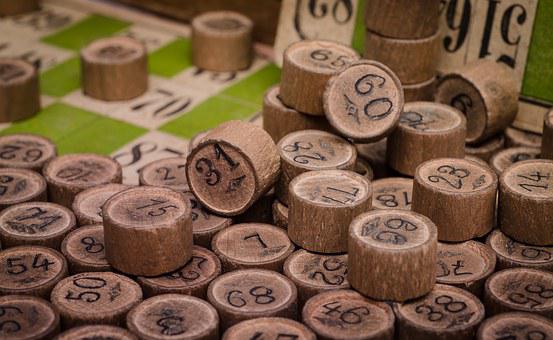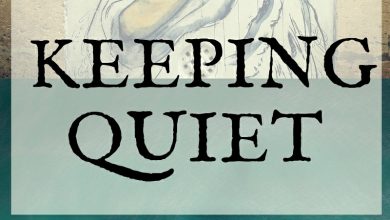
This short story was published in the June 26, 1948 issue of The New Yorker. The plot revolves around an annual ritual, “The Lottery” performed in a fictional village. Everyone is obligated to take part in this age-old tradition. An ordinary narrative suddenly shifts towards a more sinister direction as an unpredictable ending leaves readers horrified. This is one of Jackson’s most popular works which established her as one of the greatest American writers in the horror genre. Jackson explores the themes of superstition and mob mentality in this story and how easy it is for humans to give up rationality.
The Lottery | Summary
One morning on 27th June, in a village an annual ritual of the lottery is held. There are three hundred people in the village and they gather around in the village square on this exact day each year to draw “the lottery”. Other towns take a longer time to draw the lottery but since this village is small it takes them only a couple of hours. All the men and women leave their tasks and come to attain the event, all children too. As the crowd gathers some kids play with piles of stones at one corner.
Mr. Summers operates the lottery. He carries a black box that contains slips of paper inside. This isn’t the original box; the original box was lost even before the town’s oldest man (Old Warner) was born. Mr. Summers tries every year to convince everyone to get a new box but nobody listens. He did manage to replace the wooden chips which were used before the paper ones now. When Mr. Summers calls the names, the head of each household has to go and pick out a slip of paper.
Tessie Hutchinson arrives late as she forgot what the date was, people joke about her late arrival as she rushes to join her husband and children. Mr. Summer reads the rules and the lottery begins. Mr. Adams tells Old man Warner that people in the north might stop the lottery and that in many villages the lottery has already been given up. Old man Warner says that only young fools would do such a ridiculous thing as removing the lottery ritual.
After everyone is finished drawing a slip of paper they open them. It is found out that Bill Hutchinson has got the slip of paper that’s marked. Tessie isn’t happy that they have to do this, she demands that they should redraw the lottery. She says “it wasn’t fair” and her husband wasn’t given enough time to choose the paper but nobody listens to her pleas. Then all members of the Hutchinson family are asked to draw a slip of paper again. Bill, his wife Tessie and their three children Bill Jr., Nancy and Dave all pick a paper. After they unfold their papers it is found out that Tessie’s slip of paper has a black mark on it which Mr. Summers had marked the previous night.
Everyone says let’s finish this quickly and they each pick up a stone from the ground. They all advance on Tessie as she stands in the middle of the crowd. Tessie complains that “it isn’t right” and “it isn’t fair” but they start throwing stones at her, one hits her head. They proceed with the intent to stone her to death.
The Lottery | Analysis
The story initially received a lot of hate; people canceled subscriptions to The New Yorker and send a lot of hate mail. Based on the time this story was published it can be assumed that people did not appreciate anything that made the ideal society appear bad.
We start with a lovely description of the day and a typical down to earth American village environment, it is said that the day was “clear and sunny, with the fresh warmth of a full-summer day” this provides a false sense of positivity, as the story goes on the details about the villagers and their lives is nothing out of ordinary that only makes the unpredictable ending more chilling. All of a sudden tension builds up as the people open their slips of paper and the revelation in the final act leaves the readers shocked and wide-eyed.
This story focuses on themes of mob mentality and blind tradition. Told in the third person narrative, this story details the annual tradition of “the lottery” that takes place in an anonymous village. With the use of the phrase “they’ve always done so for as long as they can remember” the author establishes that it’s a very old tradition that has been passed from generation to generation. But she also mentions that “much of the ritual had been forgotten or discarded” this implies that people have no exact idea about the real purpose of this tradition but they follow it anyway. Old man Warner says that there’s an old saying that “Lottery in June, corn be heavy soon” meaning they believe this ritual will bring them favorable crops. The point made here is that these people follow harmful illogical rituals in the name of “tradition” that’s supposed to be beneficial but in reality, it is just superstitious idiocy since most of the ritual is forgotten.
The lottery is so powerful that it is not voluntary, it’s compulsory for every villager. Even if someone is absent another person of his/her family must draw the slip of paper on their behalf. Nobody can escape this nasty play. That’s the power of superstition; people would do anything as long as it’s a “tradition” that’s been passed down.
Old man Warner believes that giving up the lottery is a behavior only “crazy young fools” could do. He trusts that the lottery is essential and that stopping the tradition is simply foolish. He and many others like him don’t believe there’s anything wrong in sacrificing one scapegoat for the betterment of the entire village. There’s no evidence that this practice actually helps them in any way but they still follow it because that’s what’s been happening for generations. The lottery holds a lot of significance for these people and it’s a superstitious blind belief that they follow without question.
What’s most shocking is that they are all ordinary people, and they seem harmless at first. But out of three hundred people, no one questions this murderous ritual. They all follow this ritual like sheep and just easily kill someone. They are normal civilized people but they still take part in his horrible act. The villagers act as if they don’t even consider this a murder, for them it’s not a crime but a normal tradition that needs to be followed no matter what.
Another surprising element is that they act as if it’s no big deal; they just want to “get over with it fast”. They all know each other; all families in the tiny village are friends however, they are still ready to kill a friend just because the rule of the lottery demands it. When Dave the youngest child is not selected everyone is happy but if he was selected they would have killed him anyway. Tessie had children and she was a good friend of many people as observed in the story but no one comes to her rescue. Even her husband is a cold-hearted man who doesn’t care at all for her life. One person even hands her son a stone to throw at her. For them, it’s like a typical walk in the park.
The author also uses irony to highlight the lack of reason behind people’s acts. Tessie is alright about the lottery taking place but only when the danger falls on her family does she realize the unfair truth of this ritual. When the turn comes to her being sacrificed she screams “it’s unfair” but it’s too late, nobody can stop the ritual. The people who kill a person each year do not realize the unfair crime that’s being committed; they will only see the truth when their own life is on the line.
One more thing to notice is the treatment of women in this story. Women are not given any power and they are treated as inferiors. Only the head of the households (men) and their sons can draw the lottery. Tessie is worried about her husband and children when Bill is selected, but when she is selected for sacrifice her family shows no concern. Her husband even asks her to shut up; this shows how little value she has in his eyes. Nobody listens to Tessie’s screams. This is a stereotypical example of a patriarchal society that reflects the truth about the real society when this story was published. Women had no voice.
The Lottery | Themes
Superstition
The annual tradition of the lottery is a very important tradition that is strictly followed by all the villagers. It is an age-old tradition that nobody actually knows when it was started and they can’t even imagine how absurd it is and why it’s wrong. They don’t even think about stopping this cruel ritual. A fairly civilized society acts on blind belief. They yearly sacrifice someone to bring in good luck even if there’s no evidence that it works. They don’t even want to change the old black box, another superstitious belief. In this story, the author highlights how blind traditions can be very dangerous. The villagers don’t know its origin but still follow it anyway and they can’t even think of stopping it. They are normal people who live ordinary lives and yet commit murder so easily because it’s a tradition. They justify it because it’s what that’s been done for years. They lack logic in their actions.
Mob mentality
The negative attributes of human nature are also shown in this story. They follow this cruel practice just because a large section of people believe it. They rule out reason and follow in like sheep. It also reflects the fickle nature of human beings, they can easily turn against each other. The author wants to show that it’s possible for people to turn evil and commit horrible acts and it can happen anywhere in the world. Sometimes People follow tradition without reason so much that they commit such wicked acts. The author wants to establish that blindly following tradition could have horrific consequences.
The Lottery | About the Author
Born in San Francisco Shirley Jackson (1976-1965) was a popular American novelist and short story writer. She gained huge recognition with her story “The Lottery”, which presents a psychological horror climax. She wrote stories like “The Haunting of Hill House” and “We Have Always Lived in the Castle” which further established her reputation as a horror and mystery writer. Her work has been admired by several and even influenced the likes of Stephen King.



